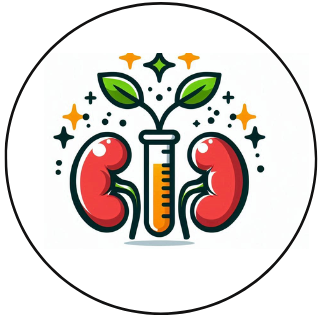The Dangers of Common Over-the-Counter Medications on Kidney Health: Natural Alternatives You Need to Know
Over-the-counter (OTC) medications are convenient and provide quick relief for many common ailments, such as headaches, muscle pain, and indigestion. However, frequent or improper use of these medications can lead to serious consequences for your kidney health. Your kidneys work hard to filter out toxins, and certain OTC medications can strain this process, potentially causing damage over time. In this blog post, we’ll explore the dangers of OTC medications on kidney health and discuss natural alternatives to help protect your kidneys.
How OTC Medications Impact Kidney Health
Kidneys play a crucial role in maintaining your body’s overall health by filtering out waste, balancing electrolytes, and regulating blood pressure. However, certain over-the-counter medications can interfere with these processes, causing harm if taken too often or in high doses.
Let’s take a closer look at some common OTC medications that can affect kidney health and discover natural alternatives to help avoid the risks.
1. The Hidden Risks of NSAIDs on Kidney Health
Nonsteroidal anti-inflammatory drugs (NSAIDs) are commonly used for pain relief, reducing inflammation, and lowering fever. They are effective, but long-term use or high doses can lead to kidney damage.
Common NSAIDs:
- Ibuprofen (Advil, Motrin)
- Naproxen (Aleve)
- Aspirin
How NSAIDs Affect Kidney Health: NSAIDs work by blocking enzymes that produce prostaglandins, chemicals that cause pain and inflammation. However, prostaglandins also help maintain blood flow to the kidneys. Blocking these chemicals can reduce blood flow to the kidneys, potentially causing kidney damage, particularly for those with pre-existing kidney conditions or who use NSAIDs frequently.
Who Should Be Cautious:
- Individuals with chronic kidney disease (CKD)
- People with high blood pressure or heart disease
- The elderly
- People using NSAIDs on a regular basis
Natural Alternatives to NSAIDs:
- Turmeric: Curcumin, the active compound in turmeric, has natural anti-inflammatory properties. It can be used as a supplement or added to food to help reduce inflammation.
- Ginger: Ginger has been shown to reduce muscle pain and inflammation. You can use it in tea, as a supplement, or in cooking.
- Magnesium Oil: Magnesium applied topically can help relax sore muscles without stressing the kidneys.
2. Acetaminophen: A Double-Edged Sword
Acetaminophen, also known as paracetamol, is used to reduce pain and fever and is often seen as a safer alternative to NSAIDs for kidney health. However, when taken in large amounts, acetaminophen can cause both liver and kidney damage, especially if combined with alcohol.
How Acetaminophen Affects Kidney Health: Although it is processed by the liver, acetaminophen can also put stress on the kidneys. Excessive use can lead to oxidative stress, which damages kidney cells, particularly for those with reduced kidney function.
Natural Alternatives to Acetaminophen:
- Willow Bark: Often considered the original aspirin, willow bark can be used to alleviate pain naturally without the potential risks to the kidneys.
- Peppermint Oil: Peppermint essential oil, used in aromatherapy or applied topically, has analgesic effects that may help alleviate headaches and minor aches.
- Pressure Point Therapy: Whether it be Shiatsu or Accupressue/Accupucture , working certain pressure points can also be effective in pain and discomfort relief.
3. Antacids and Acid Reducers: Hidden Dangers for Kidney Health
Antacids and acid reducers are used to treat heartburn and indigestion. However, many of these products contain high amounts of sodium, magnesium, or aluminum, which can be harmful to the kidneys over time.
Examples:
- Calcium carbonate (Tums)
- Magnesium hydroxide (Milk of Magnesia)
- Famotidine (Pepcid)
How Antacids Affect Kidney Health: Frequent use of magnesium or aluminum-containing antacids can lead to a buildup of these elements in the body, especially if the kidneys are not functioning properly. High sodium content can also lead to fluid retention and high blood pressure, both of which put additional stress on the kidneys.
Natural Alternatives to Antacids:
- Ginger Tea: Ginger helps soothe the digestive system and can reduce symptoms of heartburn.
- Aloe Vera Juice: Aloe vera is known for its soothing properties and can help reduce acid reflux naturally.
- Apple Cider Vinegar: A teaspoon of apple cider vinegar mixed with water before meals can aid digestion and prevent acid reflux.
4. Decongestants: A Kidney Hazard During Cold Season
Decongestants are popular for relieving nasal congestion from colds and allergies. However, many contain pseudoephedrine or phenylephrine, which can increase blood pressure and lead to reduced kidney function over time.
Examples:
- Pseudoephedrine (Sudafed)
- Phenylephrine (Sudafed PE)
How Decongestants Affect Kidney Health: Decongestants work by constricting blood vessels, which raises blood pressure. For those with kidney disease or hypertension, this can worsen kidney function and lead to further damage.
Natural Alternatives to Decongestants:
- Steam Inhalation: Breathing in steam helps open up nasal passages and clear congestion naturally.
- Eucalyptus Oil: Adding a few drops of eucalyptus oil to hot water and inhaling the steam can provide natural relief from nasal congestion.
- Pressure Point Therapy: Shiatsu or Accupressure can be effective in relieving congested sinuses and nasal passages.
Tips for Protecting Your Kidney Health from OTC Medication Risks
To protect your kidneys from the potential dangers of OTC medications, follow these helpful tips:
1. Use Medications Sparingly
Avoid taking OTC medications for extended periods unless absolutely necessary. If you find yourself relying on these medications regularly, consult your healthcare provider for alternative options that are gentler on your kidneys.
2. Stay Hydrated
Drinking enough water is essential for proper kidney function, especially when using any medication. Proper hydration helps flush toxins from your system and reduce the strain on your kidneys.
Stay on track with your hydration goals using our recommended hydration tracker water bottles.
3. Try Kidney-Friendly Alternatives
Whenever possible, opt for natural alternatives to OTC medications. Herbs, essential oils, and dietary changes can often provide relief without putting your kidneys at risk.
4. Monitor Your Kidney Function
If you frequently use OTC medications, it’s essential to monitor your kidney function and blood pressure. Regular check-ups with your healthcare provider will help catch any potential issues early. Keep track of your health at home with a blood pressure monitor to monitor changes that could affect your kidney health.
5. Check the Labels
Always read the labels of OTC medications to make sure you are taking them correctly and not exceeding the recommended dosage. Look for warnings related to kidney health. These will often be found in stated side-effects. Avoid medications with high sodium or those containing magnesium or aluminum if you have existing kidney issues.
Natural Ways to Counteract the Adverse Effects of OTC Medications
If you need to take OTC medications, there are several natural methods you can use to support your kidneys and counteract any potential damage:
- Antioxidant-Rich Foods: Eat a diet rich in antioxidants, such as berries, leafy greens, and nuts, to help protect your kidneys from oxidative stress.
- Herbal Teas: Dandelion and nettle teas have natural diuretic properties, which can support kidney detoxification and overall health.
- Exercise Regularly: Physical activity can help maintain healthy blood pressure and improve circulation, which supports kidney function.
Conclusion
While over-the-counter medications can provide much-needed relief for common ailments, it’s essential to understand their potential risks to kidney health. Frequent or improper use of NSAIDs, acetaminophen, antacids, and decongestants can harm your kidneys over time. By using these medications sparingly, staying hydrated, and opting for natural alternatives, you can protect your kidneys and maintain overall health.
For more kidney health tips and natural remedies, explore our blog for helpful guides and resources. Remember to check out the links in this article to our recommended products to support a kidney-friendly lifestyle.
The links provided in this article are for your convenience in finding items to support your kidney health.
Disclaimer: Many of the links provided in this article are affiliate links. Purchasing through these links allows kidneyfreshfuel.com a small commission. This adds no extra cost to you, but allows us to continue to bring you quality information.

